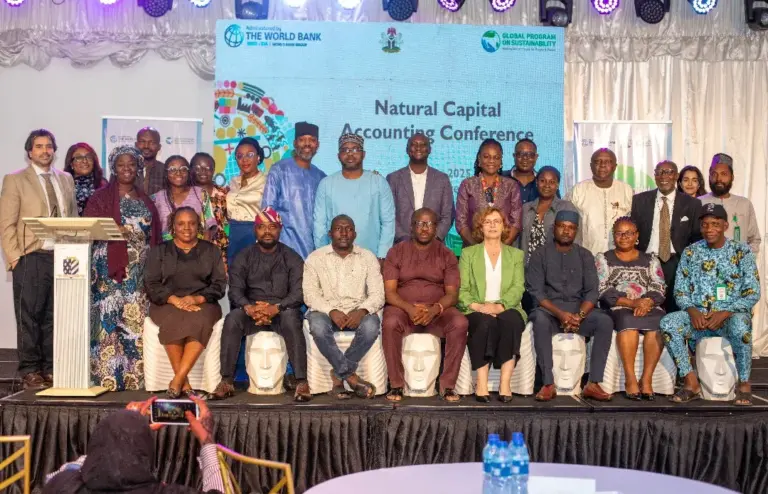As nations worldwide commemorate World Environment Day 2025, Nigeria is stepping up its environmental and economic integration by seeking strategic support from the World Bank to advance its Natural Capital Accounting (NCA) framework.
Speaking at the 2025 Natural Capital Accounting Conference in Abuja, Dr. Baba Madu, Head of the Energy and Environment Division at the National Bureau of Statistics (NBS), emphasized the nation’s need to formally embed environmental assets into economic analysis and decision-making.
The conference—organized in partnership with the World Bank, NBS, and the Federal Ministry of Environment—highlighted the growing recognition that economic growth cannot be separated from ecological sustainability.
“Natural Capital Accounting is vital if we want a realistic view of our economy,” Dr. Madu stated. “Our productivity and GDP are directly impacted by issues such as deforestation, desertification, climate change, and environmental degradation. Ignoring these factors means underestimating our true economic performance.”
Although Nigeria has started collecting NCA-related data, Madu acknowledged that significant gaps remain, particularly from Ministries, Departments, and Agencies (MDAs) involved in environmental monitoring.
“This is an emerging domain in Nigeria, and while we’ve made progress, critical data shortages still exist. We must expand our capabilities to fully capture the value of our ecosystems,” he added.
World Bank Urges Institutional Reform for Sustainable Growth
Vina Vutukuru, Programme Leader for Sustainable Development at the World Bank, reinforced the importance of institutionalizing NCA as part of Nigeria’s economic system. She noted that the integration of ecosystem services—such as clean air, water, forests, and biodiversity—into national accounting can elevate policy planning and development.
“You cannot manage what you don’t measure,” Vutukuru remarked. “Embedding natural capital into national accounts provides the foundation for sustainable development and resilience in the face of climate change.”
She also applauded Nigeria’s ambitious climate targets, noting that achieving them requires solid environmental data and systemic reforms.
Natural Resources: The Foundation of Climate Action
Representing the National Council on Climate Change Secretariat (NCCCS), Chioma Azie emphasized that natural capital is at the core of Nigeria’s climate mitigation and adaptation strategies.
“Technology and policy reform are important, but without natural resources, none of our climate ambitions can be realized,” she said. “From climate-smart agriculture and biomass to reforestation and land-use changes—natural capital drives every major action outlined in our Nationally Determined Contributions (NDCs).”
Azie highlighted that Nigeria’s NDC 3.0 will heavily rely on data produced by the System of Environmental-Economic Accounting (SEEA), which provides insight into available resources and informs the scope of mitigation efforts.
“If we can’t account for it, it’s as good as invisible,” she said. “NCA helps us document our natural reserves and better define the environmental strategies we plan to implement.”
Charting a Greener Economic Future
The conference marked a pivotal moment in Nigeria’s sustainability journey. As the country works to bridge its data gaps and integrate environmental indicators into core economic planning, partnerships with institutions like the World Bank are expected to accelerate its transition toward a green economy.
By strengthening its Natural Capital Accounting systems, Nigeria aims to reshape its development model—anchoring future growth in the preservation, valuation, and strategic use of its rich ecological assets.

